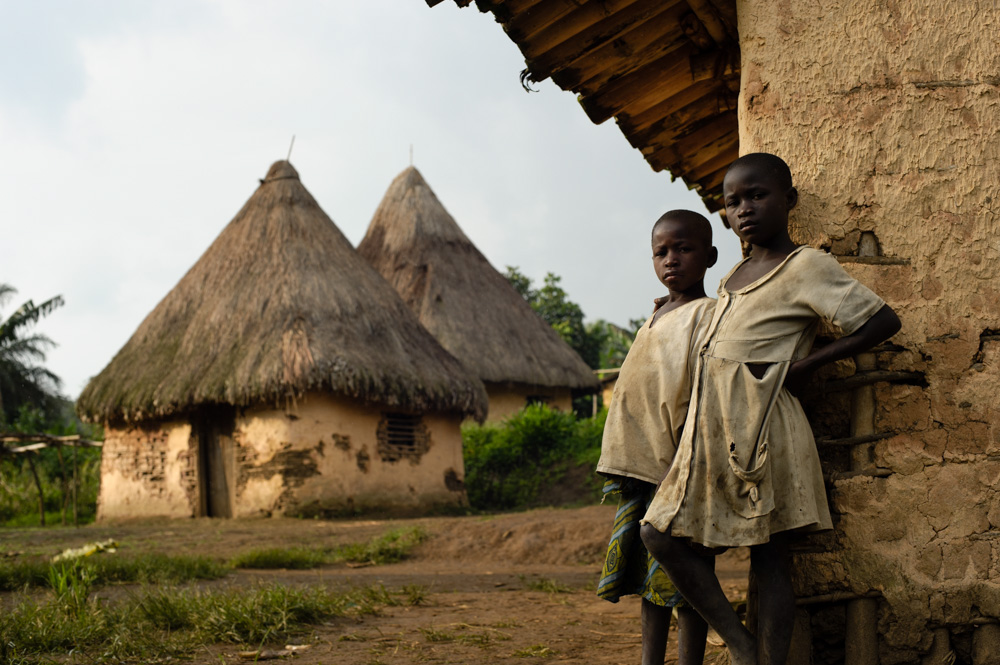 Goma, Democratic Republic of Congo - For many children in eastern Democratic Republic of Congo, the lack of development and chronic poverty afflicting the country create a barrier to education. Frequent outbreaks of conflict cause displacement, further depriving children of access to schooling.
Goma, Democratic Republic of Congo - For many children in eastern Democratic Republic of Congo, the lack of development and chronic poverty afflicting the country create a barrier to education. Frequent outbreaks of conflict cause displacement, further depriving children of access to schooling.
Backbreaking chores are an integral part of daily life for thousands of children, helping their families with farming and fetching water, as well as working in more formal employment.
While some work can be positive in a child's development, as defined by the International Labor Organization, absolute poverty stemming from decades of cyclical conflict can mean that the need for children to "help out" their parents can lock them into a cycle of hardship.
Empowering parents and children alike can help end this cycle of poverty.
In rural areas of eastern DR Congo chores are often physically demanding and involve carrying heavy loads through arduous terrain. [Phil Moore/Al Jazeera]

Under-development and cycles of conflict over the past two decades have left the country with some of the worst development indicators in the world, including in its access to education. [Phil Moore/Al Jazeera]
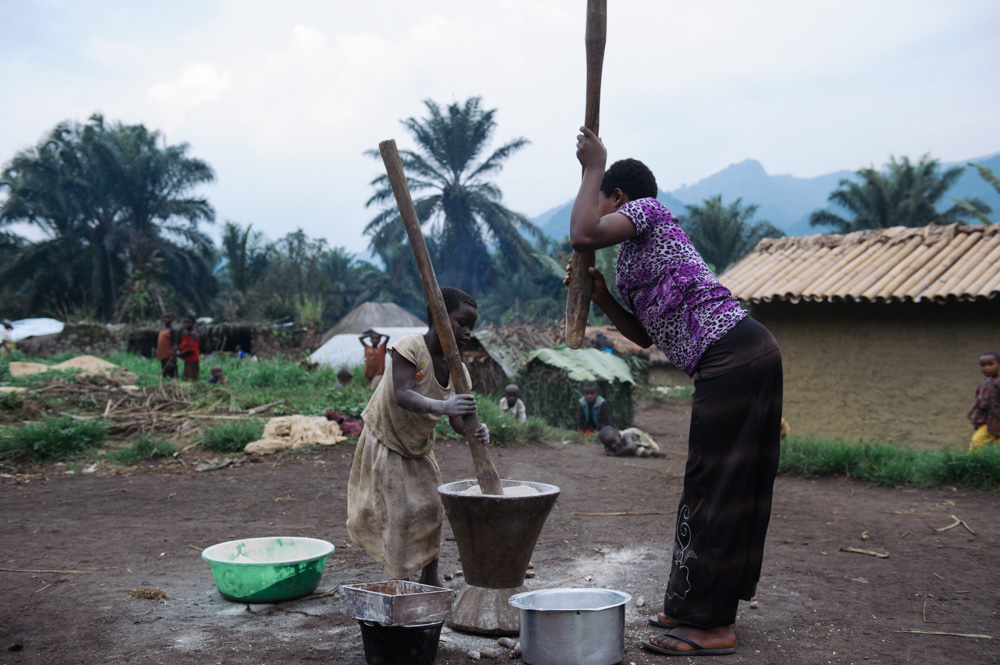
In this remote village, a full day's walk from the nearest market or roads, a young girl helps her older sister grind flour. [Phil Moore/Al Jazeera]
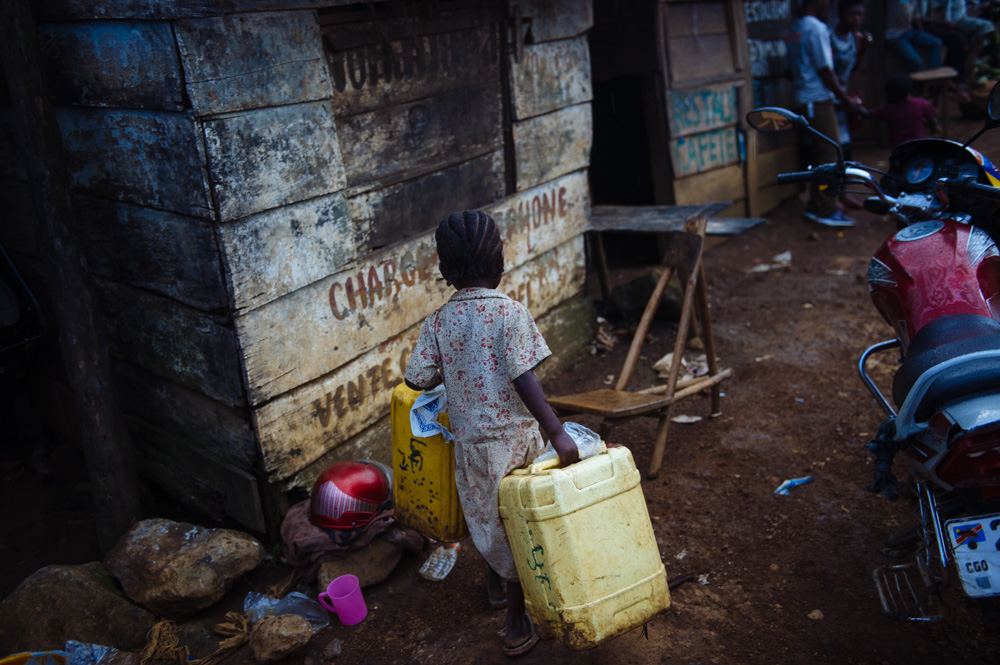
In a rural part of South Kivu, a young girl carries jerrycans used to fetch water. [Phil Moore/Al Jazeera]

A boy carries a heavy sack through the town of Mwenga in South Kivu. [Phil Moore/Al Jazeera]
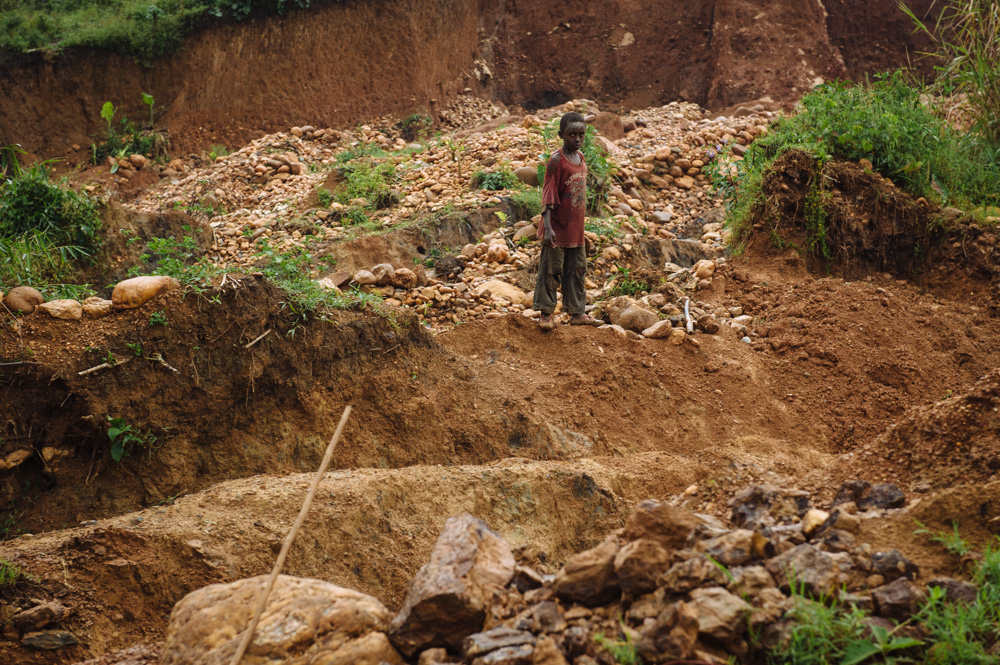
A young boy in an illegal gold mining site in South Kivu, where he helps his father. [Phil Moore/Al Jazeera]
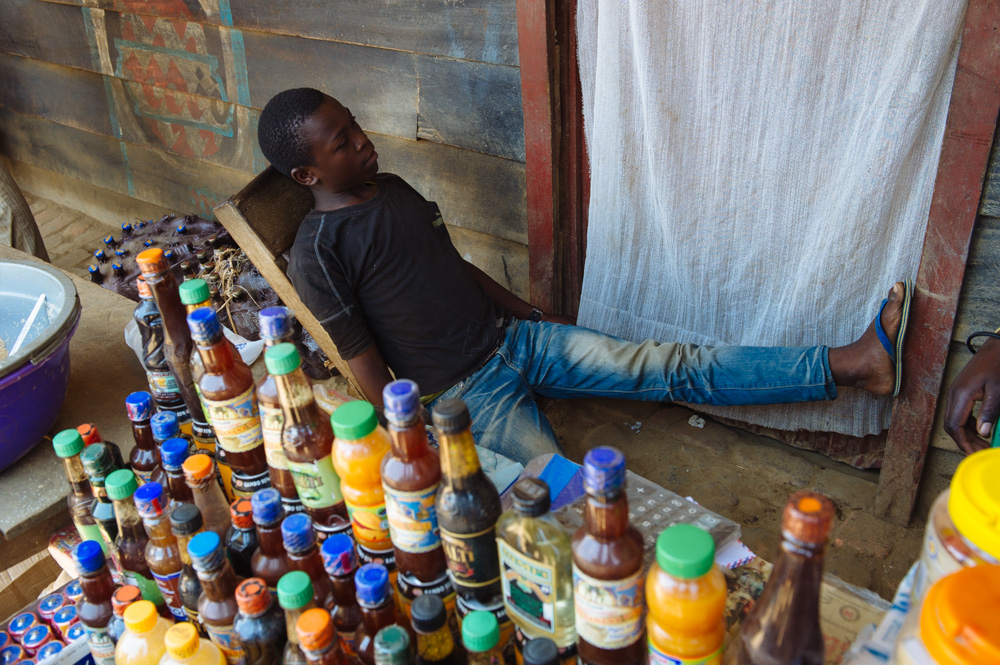
A young boy sits at a roadside stall where he works selling produce in the gold mining town of Lugushwa. [Phil Moore/Al Jazeera]

Ibrahim, 15, runs a mobile phone shop selling phone credit, in the gold mining town of Lugushwa. [Phil Moore/Al Jazeera]
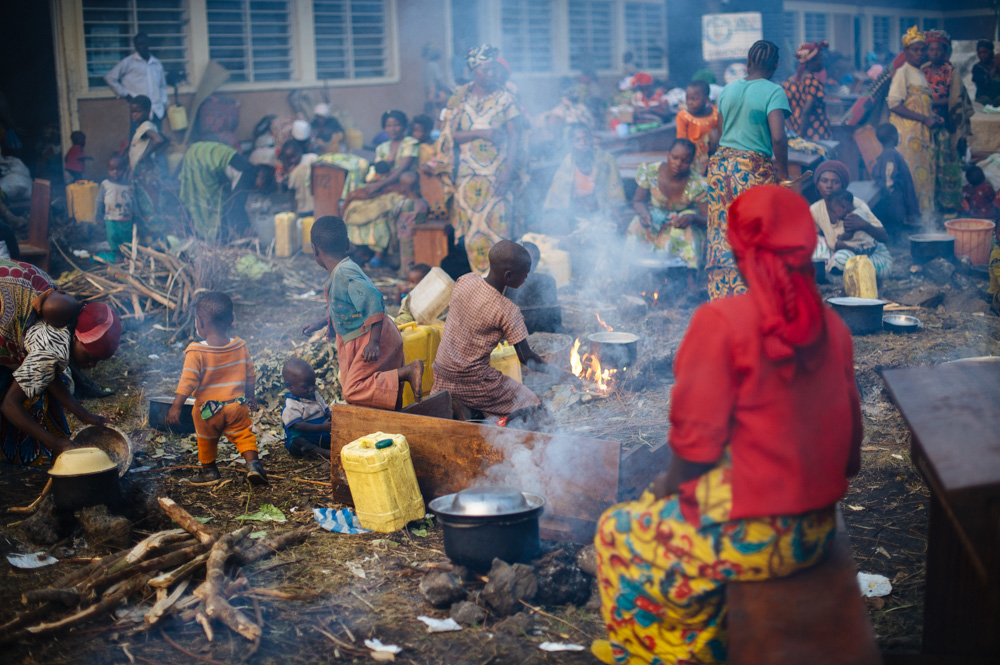
Internally displaced families took refuge at a school site just outside of Goma in 2012, during the M23 rebellion. For months, as tens of thousands of people took refuge in the area, the site was used as a shelter, and school benches were used for firewood. [Phil Moore/Al Jazeera]
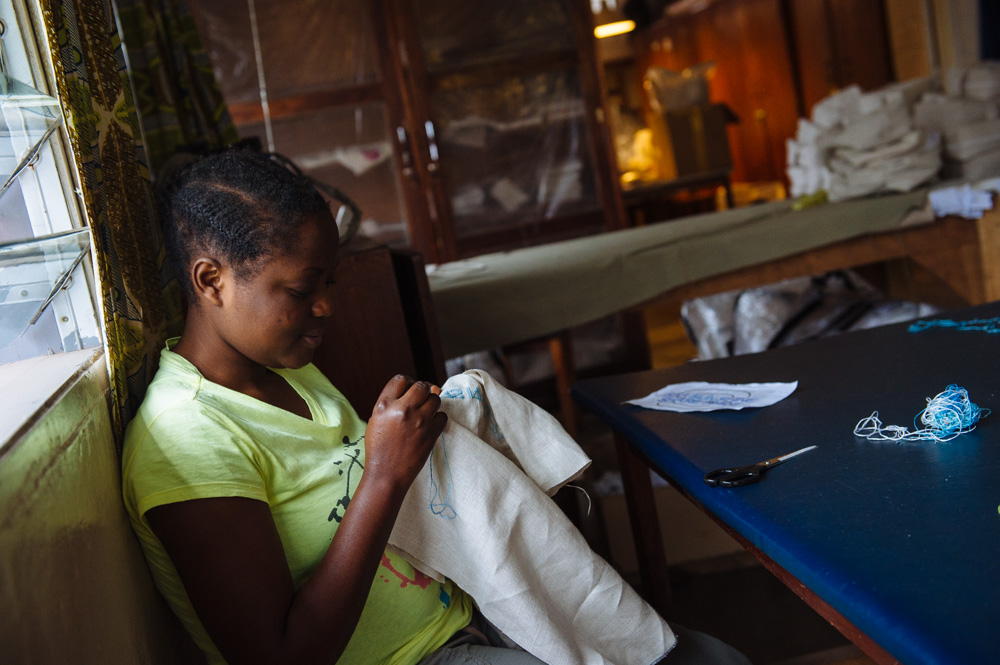
Darlene Confiance, 18, works as an embroiderer in the Kisany association. She must support her younger sister who is the only surviving member of her family. [Phil Moore/Al Jazeera]
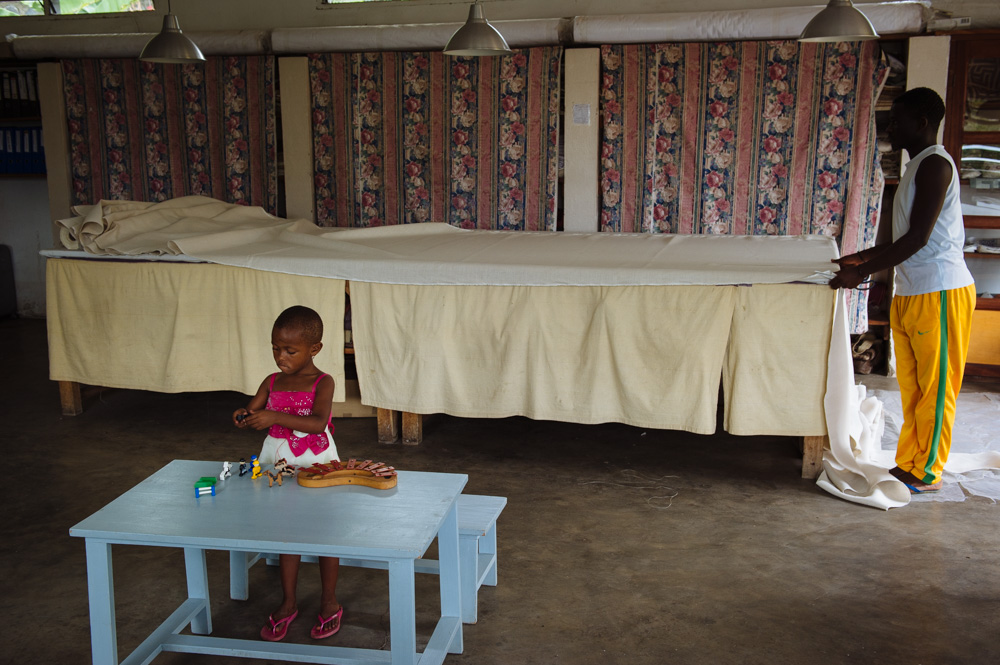
Kisany provides work for vulnerable women as well as a space for their children so that mothers can work while still looking after their children. [Phil Moore/Al Jazeera]

Goma has many street children, often orphans or those abandoned by their parents. They roam the city together for safety, but also often engage in petty crime. [Phil Moore/Al Jazeera]
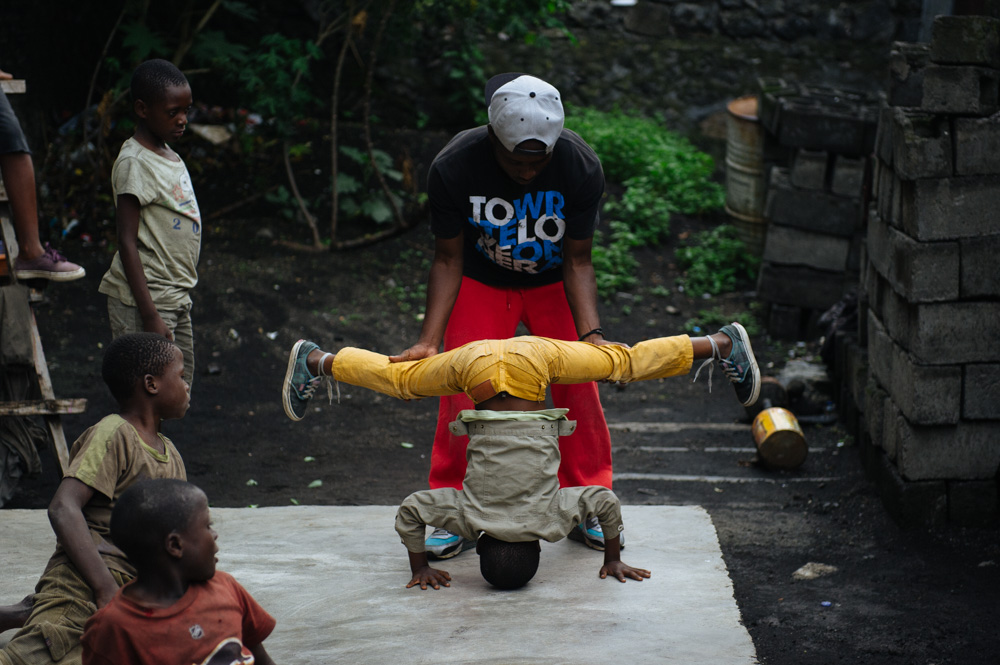
Faraja Batumike studied to be an electrician, but cannot find work. He spends much of his free time helping the street children 'so that they don't look for problems in the street'. [Phil Moore/Al Jazeera]

Faraja and a group of young dancers called Rhina Crew bring together the street children with other kids, 'so that they all understand they're the same', Faraja said. 'The street children have the same rights and they can do the same things.' [Phil Moore/Al Jazeera]
CREDIT:AL JAZEERA
This is a short description in the author block about the author. You edit it by entering text in the "Biographical Info" field in the user admin panel.













0 comments:
Post a Comment